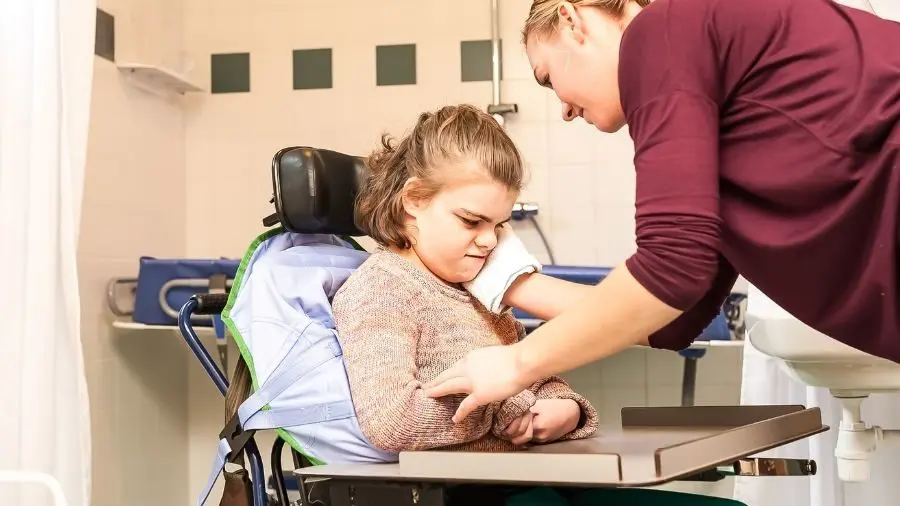In a previous article in which we discussed teaching privacy to individuals with special needs, we briefly touched on the topic of body autonomy. In this article, we go into more depth about body autonomy: what it is, how to teach it, and how, as an educator or a parent, you can reinforce body autonomy with your child. This information was also shared in a recorded conversation with Sasha Long, the host and founder of The Autism Helper, on her podcast.
What is Body Autonomy?
Body autonomy is the idea that you as an individual get to make decisions about what happens with your body. You have control over your body and get to make choices about how your body is treated by others. Having autonomy over your body means that you have the power to tell somebody “no” and require them to ask your permission before touching your body. This is an important concept to teach and reinforce, especially as it relates to sexual education for individuals with exceptionalities.
Often, individuals with special needs, particularly those with physical disabilities, receive hands-on support and physical prompting from caretakers, educators, and therapists. In order to reinforce body autonomy, we should seek consent before providing physical support. This empowers students to feel like they have control in a situation in which they may depend on the assistance of others.
Why is Body Autonomy Important?
Teaching students with exceptionalities about body autonomy isn’t only important because it empowers them to become self-advocates in educational and medical environments, it is also a critical way to address the alarming trends around the sexual assault and exploitation of individuals with disabilities.
Many individuals with special needs are not provided access to basic information about their bodies, body autonomy, and sexuality. Social narratives paint them as either asexual or as sexual predators, leading to a lack of formalized, comprehensive sexual education. This approach robs individuals of their sexual agency and critical knowledge about consent and appropriate interactions.
Individuals with disabilities are victimized at a rate three times that of persons without disabilities (2018 National Crimes’ Victim Rights Week Resource Guide). Teaching body autonomy in the context of sexual education provides individuals with the knowledge and the language to prevent or report inappropriate sexual encounters.
Reinforcing Body Autonomy in Goal Setting
Body autonomy can also be taught and reinforced through individualized goal setting. We should consider modeling this for students not only through our interactions with them, but also through the social and communication skills we teach students.
Consider the way you were taught to act when you meet somebody new. For many, the polite and appropriate way to greet someone is to walk up to them, offer your hand for a handshake, and introduce yourself. Not everyone is comfortable with physical interactions and that’s okay! Social skills and greetings don’t need to include a physical component. We can teach alternative ways to greet others such as a wave or a polite ‘hello’.
Consider also the context when teaching social skills and appropriate interactions. Help your students understand to whom it is appropriate to offer a hug versus a handshake or wave. Keeping body autonomy in mind allows us as educators to be more flexible and creative in the ways in which we teach students about communication skills.
These concepts and teaching suggestions aren’t unique to educators. Parents – you are the #1 educator for your child and we know you want the best outcome for them. Providing comprehensive sexual education information will help to keep them safe and help them make good choices.
Talk with your child’s educators and support team to ensure you’re presenting a unified front both in school and at home. Reinforcing consistent information will help your child internalize these practices and become better self-advocates.
Listen to The Autism Helper podcast to hear Dr. Schwartz discuss body autonomy and sexual education for individuals with disabilities with founder and podcast host, Sasha Long, BCBA.
Dr. Rachel Schwartz, BCBA-D is an Educational Consultant at the Watson Institute. She received her Master’s Degree in Teaching and Applied Behavior Analysis from the University of Georgia and her Ph.D. in Special Education from the University of Pittsburgh. Dr. Schwartz has worked internationally creating supervising programs for individuals with developmental disabilities and conducts research on the importance of sexual education and expression for individuals with intellectual and developmental disabilities.
